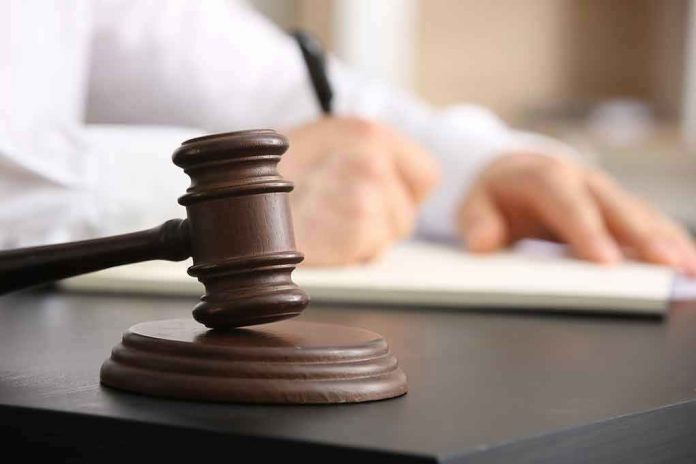
Florida’s legal system faces a constitutional crisis as Attorney General Uthmeier’s public attacks on State Attorney Worrell threaten the independence of locally elected prosecutors and the integrity of self-defense law in Central Florida.
Story Snapshot
- Attorney General James Uthmeier accuses State Attorney Monique Worrell of “soft on crime” decisions, igniting statewide controversy.
- Jurisdictional battle centers on the prosecution of Tina Allgeo and Florida’s Stand Your Ground law.
- Worrell’s reelection after prior suspension highlights voter division and support for prosecutorial independence.
- Dispute raises constitutional questions about separation of powers and risks eroding public trust in justice.
Uthmeier Challenges Worrell’s Prosecutorial Authority
In September 2025, Florida Attorney General James Uthmeier publicly criticized State Attorney Monique Worrell for allegedly lenient sentences in two high-profile cases, most notably the Tina Allgeo prosecution. Uthmeier framed Worrell’s decisions as a threat to public safety and accused her office of failing to aggressively pursue justice. The controversy quickly escalated from routine case management to a statewide flashpoint, with Uthmeier’s remarks signaling a broader law-and-order agenda that prioritizes strict criminal prosecution over local discretion. His criticism reflects concerns shared by many Floridians about perceived soft-on-crime policies undermining community safety.
Jurisdictional Transfer and Stand Your Ground Law Debate
The core dispute centers on who has the authority to prosecute cases involving self-defense claims under Florida’s expansive Stand Your Ground laws. Worrell’s office maintains that she acted within constitutional boundaries, citing a June 10, 2025, notice from the Office of Statewide Prosecution that formally transferred case jurisdiction before Uthmeier’s public criticism. During a press conference on September 26, Worrell accused the Attorney General of misrepresenting the timeline, arguing that the transfer was routine and not a result of prosecutorial failure. This back-and-forth highlights the legal complexity of determining immunity in self-defense cases and underscores the importance of prosecutorial discretion in balancing public safety and individual rights.
Constitutional Independence Versus Executive Power
Florida’s constitution was designed to ensure locally elected State Attorneys exercise independent judgment, free from executive branch interference. Worrell’s reelection after suspension by Governor DeSantis exemplifies the tension between voter-supported prosecutorial independence and executive oversight. Her statements emphasize that prosecutors serve the people of their circuit, not as extensions of the Governor or Attorney General. Uthmeier’s aggressive stance, however, raises concerns among constitutionalists about erosion of separation of powers, warning that concentrated executive authority could undermine the impartial administration of justice and local accountability.
Escalating Political and Legal Rhetoric
The conflict between Uthmeier and Worrell has intensified, with both sides exchanging pointed accusations. Uthmeier labeled Worrell “soft on crime” and “soft on child predators,” while Worrell dismissed his prosecution experience and called him a “punchline.” This rhetoric reflects a broader ideological battle over criminal justice policy in Florida, with implications for future elections and community confidence in the legal system. The timing of the dispute, just as Worrell planned to address rising road rage incidents in Central Florida, underscores the risk that political infighting could distract from urgent public safety issues.
Implications for Self-Defense Cases and Community Safety
How the Allgeo case and related jurisdictional disputes are resolved will set important precedents for Florida’s Stand Your Ground law. Prosecutors may face pressure to charge more aggressively or resist political criticism to uphold their independence. Defense attorneys are already leveraging the discord to argue for impartial justice, while crime victims fear inconsistent prosecution outcomes. Ultimately, when prosecutorial leadership is embroiled in public battles, community trust and safety may suffer—raising alarms among conservatives concerned with law, order, and constitutional governance.





